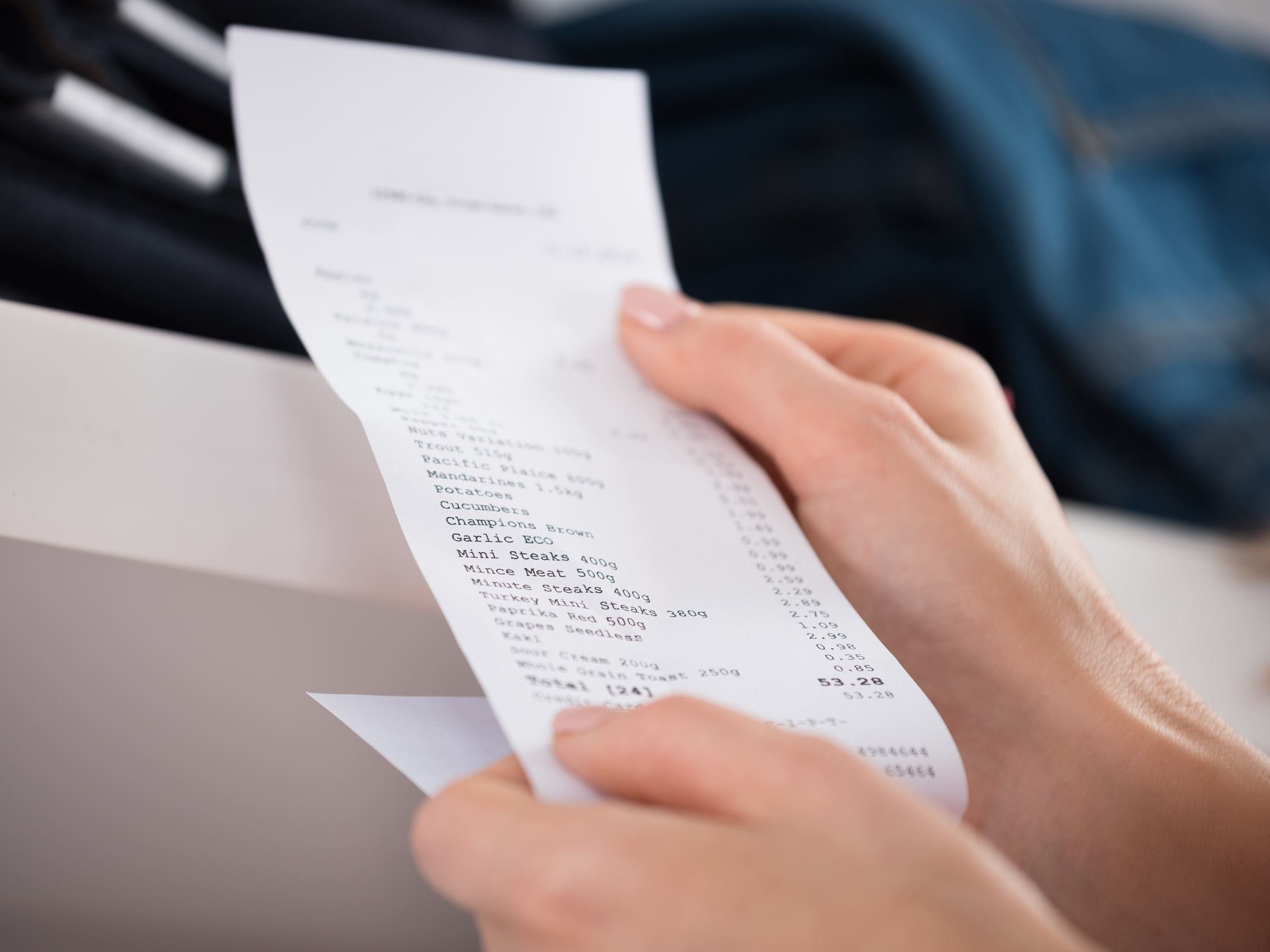Get Easy Health Digest™ in your inbox and don’t miss a thing when you subscribe today. Plus, get the free bonus report, Mother Nature’s Tips, Tricks and Remedies for Cholesterol, Blood Pressure & Blood Sugar as my way of saying welcome to the community!
The disease-causing toxin you get with every purchase

By now, you’ve heard all about the dangers of Bisphenol A (BPA)…
BPA is an endocrine-disrupter that messes with your hormones and contributes to health problems like infertility, breast cancer, prostate cancer, type 2 diabetes and heart disease — which means you’ve probably switched to BPA-free bottles and cans, and traded your plastic Tupperware for glass.
But your bottles, cans and Tupperware containers may not be the source of BPA that’s doing your body the most harm…
As you probably already know, BPA is in most shopping receipts too. And, it turns out, exposure to BPA through receipts is probably the absolute worst for your health — and here’s why…
BPA from receipts invade your body and stay
A recent study from researchers at the University of Alberta and Stockholm University found that BPA sticks around in your body longer when you’re exposed to it through receipts than when you’re exposed through food.
More specifically, they found that people who ate cookies that contained a few micrograms of BPA got it out of their system quicker, than people who touched receipts containing BPA.
People who ate the BPA, for example, expelled it from their system within 24-hours. Researchers confirmed this by testing their urine.
When people touched a BPA-filled receipt, however, the amount of BPA in their urine continued to rise for two whole days! And even more disturbing, researchers could still detect the BPA in their urine a week later. Yikes!
This means BPA lasts longer in your body when it’s introduced through your skin than through your digestive tract. So you should be more worried about those receipts laying around in your purse or wallet than the BPA leaching from your food containers or water bottle.
In fact, previous research shows that just one receipt contains way more BPA than you’d be exposed to from a leaching water bottle over the course of several years. If you think about how many times per day you mindlessly grab a receipt from a cashier, you realize this is not good news (and it’s even worse news if you are a cashier!)
As consumers, though, we have choices. And not taking receipts filled with a dangerous chemical is one of them…
A good reason to avoid receipts
I’ll admit… it’s not easy nowadays to completely avoid receipts. I’ll also admit that even though I know there’s BPA in receipts, I’ve been less conscientious about avoiding receipts than I have about using a BPA-free water bottle and never microwaving my food in BPA-filled plastic.
Maybe you’ve fallen into the same trap I have, forgetting just how dangerous receipts are. If that’s the case, then it’s time to change our ways and become more aware of how we’re handling receipts on a daily basis.
In fact, with a few simple changes we can reduce our exposure to receipts (and BPA) significantly. Start by:
- Asking to have your receipt emailed. A lot of stores offer the option to get electronic receipts. It saves waste, prevents clutter and keeps you far away from BPA!
- Remaining cautious around BPA-free receipts. Some of your favorite stores may offer BPA-free receipts. Target, Starbucks and Bank of America, for example, all reportedly have BPA-free receipts. But BPA-free receipts usually contain a similar chemical called BPS, which could have some of the same health risks.
- Not handling receipts when you’ve just put on lotion or hand sanitizer. These products open up your skin, so it absorbs even more BPA.
- Asking the cashier to put your receipt in the bag when you really need a receipt. When you get home, you can use gloves or an oven mitt to take it out. I know that sounds extreme… but the consequences of high BPA exposure are extreme too. So who’s to judge what you do with your receipts in the privacy of your own home!
- If you have receipts you need to hold onto for a while, get them out of your purse, wallet or shopping bag and keep them safely tucked away in a plastic bag…where they won’t accidentally come in contact with your skin any more than necessary.
- If you work as a cashier (or any job where you frequently handle receipts), consider wearing nitrile gloves. These are non-latex safety gloves you can buy online. Wearing gloves on the job may look strange, but you can tolerate a few sidelong glances if it protects your health. And on the plus side, it will protect you from germs too!
Sources:
- Bisphenol A: How does it affect our health? — Medical News Today. Retrieved September 25, 2017.
- Bisphenol A exposure through the skin from store receipts takes longer to be excreted — MedicalXpress. Retrieved September 25, 2017.
- Jiaying Liu, et al. “Prolonged Exposure to Bisphenol A from Single Dermal Contact Events.” — Environmental Science & Technology, 2017.
- Don’t Touch That Cash Register Receipt — It’s Toxic — TakePart. Retrieved September 25, 2017.
- The risky chemical lurking in your wallet — Consumer Reports. Retrieved September 25, 2017.
- BPA Coats Cash Register Receipts — Environmental Working Group. Retrieved September 25, 2017.












